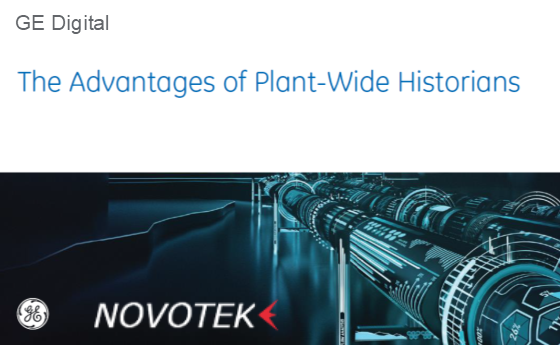 Complete the form below to download the free whitepaper.
Complete the form below to download the free whitepaper.Making sense of machine data? It’s easier than you might think
There's a lot of confusing buzz surrounding machine learning and AI, but your first step to getting real value from machine data is quite straight forward.
Whatever you choose to tackle first – machine reliability, process yields and quality, or even energy efficiency – it will mean that other needs must wait until the first project is done – at least that’s the way it’s always been. And that means weighing different critical needs against each other: machine uptime or energy costs; or material costs and proving compliance, just to name a couple of dilemmas. Tough decisions…
But what if you could make it easy for different stakeholders to make progress in parallel? And what if you could put in place a machine data repository that could easily feed other systems and many kinds of reporting tools? Most importantly – what if you could give your teams a solution that was suitable for both in-the-moment analysis and troubleshooting, AND long-term structured reporting and analysis?
So, if easy access to machine data can give your team the means to bolster the bottom line, what should a good solution provide?
1. Fast and simple deployment – plant historians are designed to be configured, maintained and used by technicians, engineers and power users. Not by programmers and mathematicians
2. Connectivity – the idea is to bring all machine and sensor data to one place, rather than maintaining many individual data collection systems. And to make it possible for many tools to access that data through standard technologies, rather than proprietary applications or viewers
3. Performance – tricky problems or complex analysis usually mean looking at large data sets, both in terms of the number of factors to analyse, and in terms of the time periods you investigate. Historians are optimised for data storage and retrieval, so they can deliver answers on big data sets where corporate/back-office databases and cloud systems may fail.
You can help get your organisation on the right footing by knowing the right questions to ask about how different stakeholders need to be supported. We invite you to download our white paper on choosing the right tools to make machine data easy to access and easy to use.
With the right approach, fast, impactful first steps can ease the way to supporting a range of productivity initiatives, environmental programs, compliance regimens, and more.
Complete the form to download the The Advantages of Plant-Wide Historians whitepaper.
Privacy Policy Terms of Use Cookies Policy

Copyright © 2025 Hennik Research, publisher of The Manufacturer. All Rights Reserved.
.png?width=200&height=140&name=MicrosoftTeams-image%20(43).png)